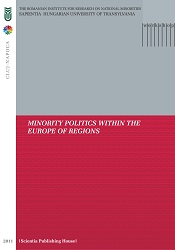

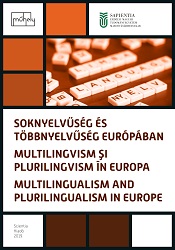
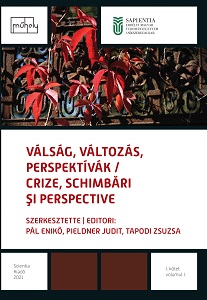
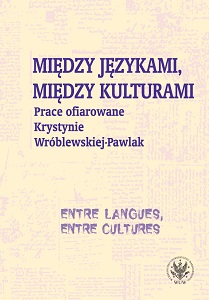
Between languages, between worlds: life in a new language through the experiences of three female writers
Między językami, między światami – o życiu w nowym języku w świetle doświadczeń wybranych pisarek
Keywords: bilingual female writers; migration; bilingualism; language acquisition; linguistic adaptation; belonging
This paper presents the issue of bilingualism and life in a new culture through the experiences of three writers (Mary Antin, Eva Hoffman, Gerda Lerner), who left their home countries as teenagers and emigrated to the USA (Antin, Lerner) and Canada (Hoffman). Their reflections on starting life in a new language provide an opportunity to analyze language acquisition and linguistic adaptation in the immigrant setting.
More...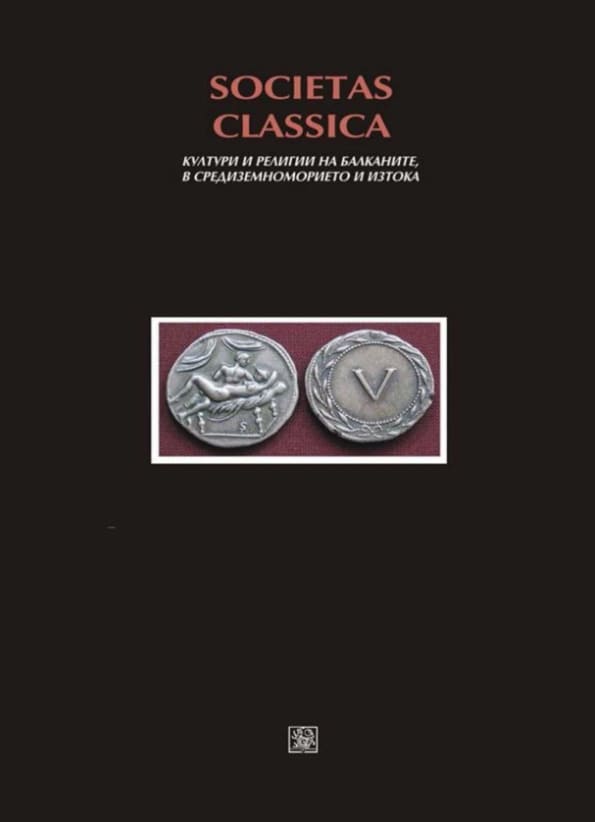
The Greek-Language Poetic Work of Three Bulgarians: Ivan Seliminski, P. Protis, and Gr. Parlichef
Гръкоезичното поетично творчество на трима възрожденски българи – Ив. Селимински, П. Протич, Г. Пърличев
Keywords: poetry in Greek; University of Athens; Bulgarian Hellenists; Bulgarian Renaissance scholars
In the middle of the 19th century, a large number of Bulgarian Renaissance scholars, which included Ivan Seliminsky, Petar Protich and Gregor Parlichev, created poetry in Greek. The works which are presented by the three Hellenists in the present study are a valuable a source for some of the characteristic features of the Balkans, as well as the language characteristics and the particular style from each of them. P. Protich’s satire focuses on the dangers hidden in Hellenistic phenomena of the Balkan intelligentsia. The poems of Greg. Parlichev are distinguished for their rich poetic language and describe the struggle for liberation from the centuries long yoke of slavery, while Iv. Seliminsky presents events in Wallachia since the middle of the 19th century. In the life and spiritual attitude of these three Hellenists there is something very common – they attend Greek schools, they study at the University of Athens, live and work for the political and spiritual regeneration of the Bulgarian people.
More...
Intransitive Verbs with Acquisition of Transitivity in the Greek Language
Непреходни глаголи с придобита транзитивност в новогръцкия език
Keywords: intransitive verbs; transitivity; intransitivity
In Modern Greek language, the verbs function extremely flexibly in terms of transitivity / intransitivity. In conversational speech, Greeks often violate syntactic norms, and many intransitive verbs change their character and become transitive.
More...
Translation from Greek Language of Historical Cultural Speciifics
Преводът на исторически реалии от гръцки език
Keywords: historical culture specifics; Greek language; translator approach; background knowledge
The article covers issues in translating historical culture specifics from the Greek language. Translatability of such a specific lexical unit is admissible in principle, as long as the national and historical cultural colour is preserved in accordance with the artistic experience of the target environment and with the particular social and cultural context, provided that there is no excessive transcribing or providing of numerous explanations of the culture specifics in the fiction translation. The article places emphasis on the fact that solution should be sought on a case-bycase basis, in accordance with the choices, made by the translator, their skills, attitude and the linguistic tradition.
More...
About the Word “Havra” in Bulgarian, Greek and Russian Language
За думата „хавра“ в българския, гръцкия и руския език
Keywords: meaning; havra; language; Bulgarian; Greek; Russian
In this paper is presented the word “havra” from semantic point of view – its meanings, matchability, use, as well as the origin of the word “havra“ in Bulgarian, Greek and Russian with fair relevance in the examined three languages.
More...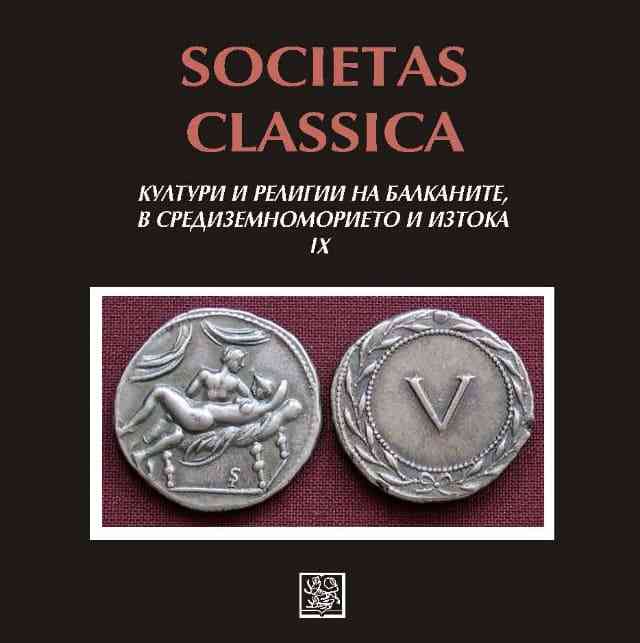
The Kitchen of Aristophanes’ Comedy “Birds”: Erotica and Politica
Кухнята на Аристофановата комедия „Птиците“: еротика и политика
Keywords: Aristophanes; comedy The Birds; culinary code; “the lifestyle/ the diet of birds”; the alelofagiya motive
The article analyzes Aristophanes’ comedy The Birds performed in 414 BC at the City Dionysia and not long after the commencement of the Sicilian Expedition. The play is built largely on the specific culinary code defining the political and cultural „otherness” through „the birds’ life”. Information of this type can be organized into three main groups: – Motifs that characterize „the lifestyle/the diet of birds” scattered throughout the text of the comedy; – To this group gravitates the motive for the creation of the world as culinary confusion in so-called „Ornitogoniya” (vv. 693–702) in the first parabaza. – The alelofagiya’s motive, the motive of killing/eating conspecific, culminating in the episode with the penalty of rebelling against democracy birds (1579–1590; 1637; 1689), baked for the wedding of Pisthetaerus with Basileya.
More...
Ancient Greek and Modern Greek, or Just Greek
Старогръцки и новогръцки или просто гръцки език
Keywords: language tradition; language-specific features; language question; diglossia; Ancient Greek; Modern Greek
The paper deals with the Greek language question as well as the specific historic development of the Greek language. Special attention is paid to diglossia and the problems it brings about. The study highlights the points of view of the proponents of Dimotiki and Katharevousa, their contribution to the development of the language question and the theory of the unity of the Greek language. Last but not least, the paper also raises the issue of the arguments concerning the name of the Greek language (Dimotiki or Modern Greek) and its teaching.
More...
The Hellenic School in Turnovo and the Orthodox Clergy in the First Half of the 19th c.
Елинското училище в Търново и православният клир през първата половина на XIX век
The present study deals with an important point in the history of the educational activities in the old capital city of Turnovo, namely the opening of a Hellenic school in 1821. The analysis of the data of its chronicle reveals the significant role of the Orthodox clergy, headed by the bishop of Turnovo, in relation to the establishment, organization and maintenance of the school. By the middle of the 19th c. it was not only the most authoritative centre of education in the city but it also had a leading role in the public and economic life of the Bulgarians.
More...
Word-Formation Models in Calquing Modern Greek Linguistic Terminology
Словообразувателни модели при калкиране на новогръцката лингвистична терминология
The aim of this paper is to summarize the basic processes of word formation of Modern Greek linguistic terminology in the calquing of English linguistics terms into Modern Greek. The paper analyses processes of word formation such as suffixation, prefixation and neoclassical compounding.
More...
Comparative Analysis of Phraseologisms with an Unalterable Pronoun and Verb in Greek and in Bulgarian
Съпоставителен анализ на фразеологизми с неизменяемо местоимение и глагол в новогръцкия и българския език
Keywords: phraseologisms; pronoun
This report makes a brief comparison of phraseologisms with unalterable pronoun and verb in Greek and Bulgarian. Pronouns don’t have declinable paradigm, don’t operate on grammatical and lexical level, they are simply a formal marker. Among them the two component’s Greek phraseologisms are the most difficult to locate and interpret because the phrases are very short, must function as free collocations, and in many cases are with opaque motivation.
More...
The Wealth-Poverty Semantic Model of the Bread Concept in Bulgarian, Russian, and Greek
Семантичен модел богатство-бедност на концепта "хляб" в български, руски и гръцки език
Keywords: phraseological unit; semantic aspect; culture; linguistic consciousness
As designated as signs for second nomination, through its internal form the phraseological units are characterized with their feature to carry more enlarged knowledge and help to make more explicit the peculiarities of its world perception in comparison to the signs of first nomination. The present paper is an attempt the semantic aspect of the phraseological units of the semantic field of the concept „bread” to be analyzed and in particular the phraseological units of the model „wealth-poverty”, which belongs to the same semantic field. It is emphasized the central position of the bread in the linguistic consciousness of Bulgarians, Russians and Greeks, as well as its fundamental role in the culture of these three nations.
More...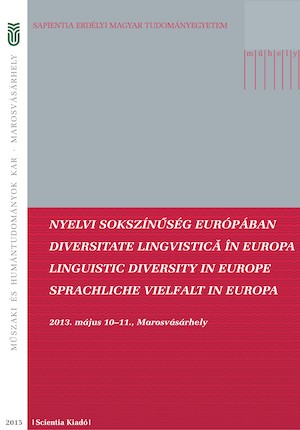

ABOUT THE AUTHORS
A KÖTET SZERZŐI / DESPRE AUTORI / ABOUT THE AUTHORS / DIE VERFASSER DES BANDES
More...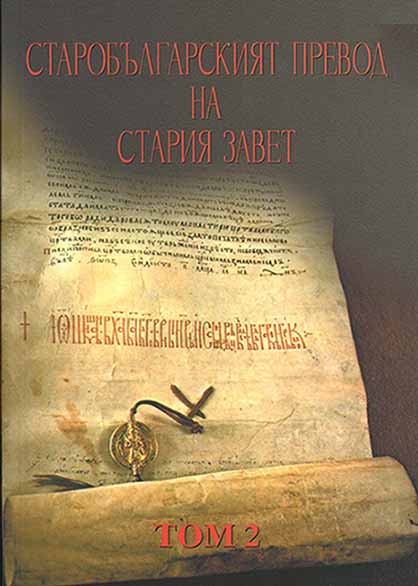
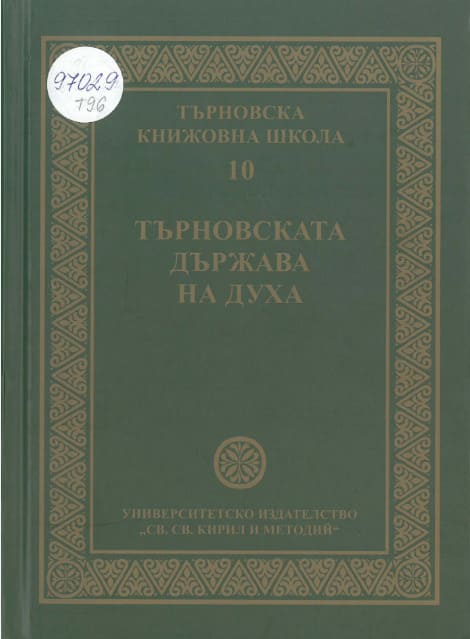
To the Question of the Lexical Richness in the Works of Euthymius, Patriarch of Tarnovo
Към въпроса за словното богатство в произведенията на Патриарх Евтимий
Keywords: Bulgarian diachronic lexicology; Middle Bulgarian; vocabulary of Patriarch Euthymius
The article summarises the author’s work on the excerpt of Letter N from the Glossary of Patriarch Euthymius. It presents a preliminary observation of part of the vocabulary in the writings of this 14th-century Bulgarian man of letters. The statistical structure of the Glossary is presented in summary – the letter N and the dissemination of the words beginning with N on the micro- and macro-level both in the works by this author and in the Medieval literature with a view to following the continuity of the language and influence of the Cyrillo-Methodian tradition on the writers associated with the Literary School of Tarnovo. A general characteristic of the Glossary is made in relation to the grammatical and semantic category of the constituent lexemes in comparison with the word-forming tendencies in the Old Bulgarian as well as with regard to the origin and functional delimitation of words. Special attention is paid to the vocabulary which has not been lexicographically described so far, as well as to the lexis which is considered diagnostic when ascribing this precise author to a particular literary tradition.
More...
About the Vocabulary with Foreign Origin in Patriarch Euthymius’ Original Works
За лексиката с чужд произход в оригиналното творчество на Патриарх Евтимий
Keywords: Patriarch Eythymius; Bulgarian historical lexicology
The study is an essay to draw a classification of the lexemes with foreign origin, mostly Greek and Latin, according to the 13th original works of Patriarch Eythymius. Those lexical strata englobe multifunctional and nonhomogeneous unities, dispersed in different textual contexts. They are just a nuance, not the base of the vocabulary, but perform important historical, cognitive, and stylistic functions, rising the prestige of the lexical richness, and crediting it with international dimensions in basic conceptual spheres of Christianity.
More...
The Participles in the Dionysius’ Translation of the Homilies Against the Anomoeans by St. John Chrysostom
Причастията в дионисиевия превод на словата против аномеите от св. Йоан Златоуст
Keywords: participles; Middle Bulgarian language; Dionisiy Divniy; John Chrysostom; Tarnovo Literary School
The survey hereby focuses on the peculiarities of the participles in a hitherto linguistically unexplored text, namely the Middle Bulgarian translation of Contra Anomoeos („On the Incomprehensible Nature of God“) by John Chrysostom. It consists of six sermons, comprising the first part of the book Margarit (Pearl), a crucial component of the Slavic handwritten tradition. The study of the Slavonic translation of Margarit is very important for outlining the translation practice of the scholars of the literary circle around Theodosius of Tarnovo. The survey is based on the earliest Bulgarian transcript – manuscript F.I.197, kept in The National Library of Russia, Saint Petersburg – written in the middle of the fourteenth century. The manuscript is considered to have been composed during the lifetime of his translator – the scholar Dionisiy Divniy. The article highlights a high degree of similarity between the linguistic devices used by Dionisiy Divniy and by the other representatives of the Turnovo Literary School from the fourteenth century.
More...The search is temporarily unavailable.
We apologize in advance for the inconvenience and thank you for your kind understanding.
